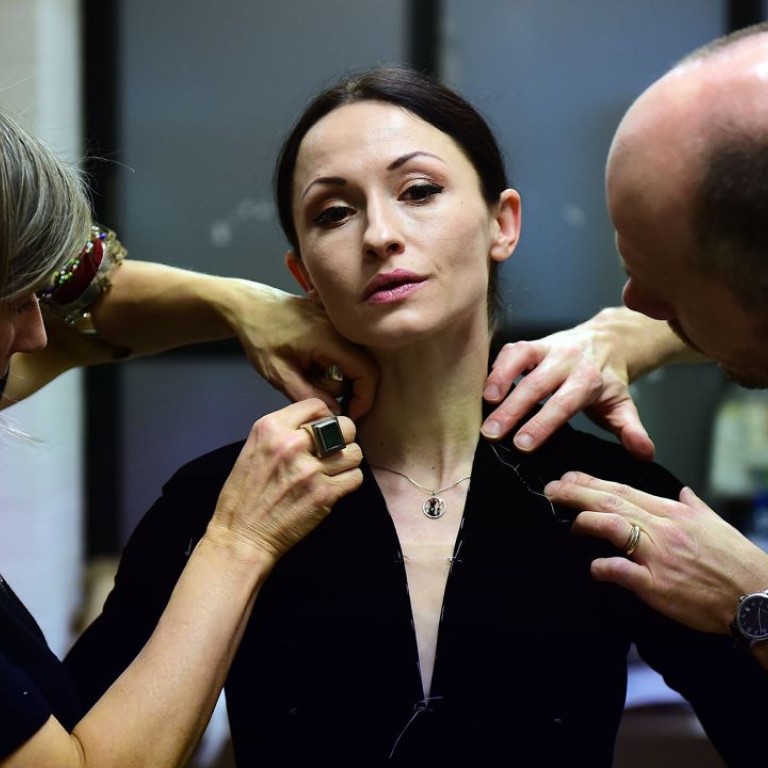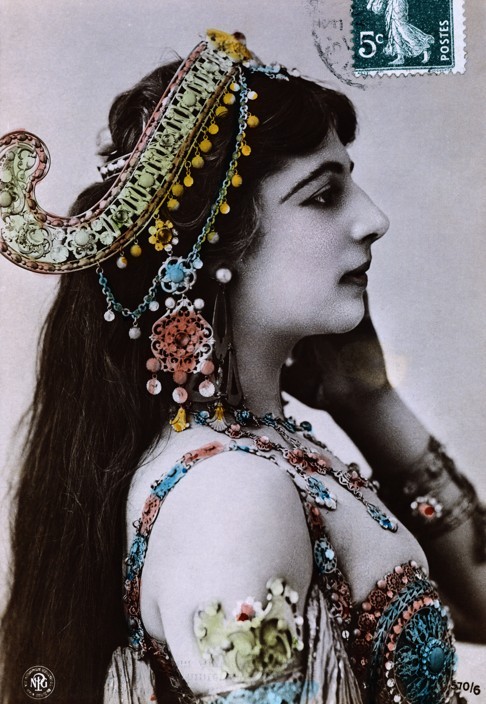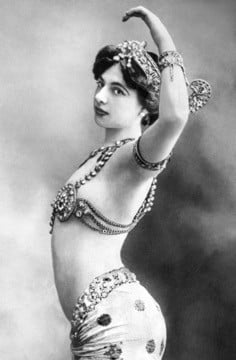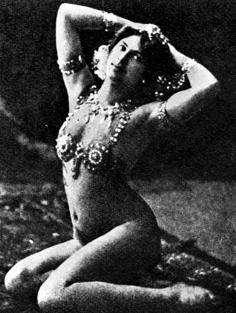
First world war spy Mata Hari brought to life in new Dutch ballet
Almost as well known for her scandalous affairs as for her erotic, Eastern-influenced choreography, Mata Hari is the subject of the Dutch National Ballet’s new production almost a century after her execution for treason
Nearly a century after she was shot as a spy, the story of the world’s ultimate femme fatale, Mata Hari, is to be staged for the first time as a ballet in her native Netherlands.
Mata Hari opened to a sold-out premiere at the Dutch National Ballet in Amsterdam last month. It seeks to bring to life through dance the woman whose name has become synonymous with unbridled sensuality and ultimately, fatal betrayal.
Frisian-born Margaretha Geertruida Zelle, known by her stage name Mata Hari, was executed by a French firing squad on October 15, 1917, after being accused of spying for Germany during the first world war. She was just 41.
SEE ALSO: Lam Chun-wing, Hongkonger storming the classical ballet world
In the years before the war, her daring, exotic striptease act had brought her notoriety, fame and adoration and she’s widely regarded as one of the world’s first-ever exotic dancers.
Her Oriental “sacred dances” act in pre-war Parisian halls pushed the boundaries of what was then considered acceptable and often saw her stripping to little more than a bejewelled brassiere and a silk veil – making her an overnight sensation in the French capital and elsewhere in Europe.

Now her story is being told “en pointe” for the first time.
“I wanted to make a dramatic ballet … and I was looking for subject matter to create dance, so there had to be a connection with dance,” says Ted Brandsen, Dutch National Ballet director and the show’s choreographer.
“Mata Hari was a person who always fascinated me and she was Dutch. A lot of people actually don’t know that,” Brandsen says.
The idea of creating a major new ballet began four years ago – and when Brandsen shared his plans with two-time Grammy-nominated British composer Tarik O’Regan, it all came to life.
More than 60 dancers will perform during the two-hour production, which presents a kaleidoscope of experiences from Mata Hari’s life.
Much of the ballet is set in Paris, where she kept a string of lovers that was said to include famous Italian composer Giacomo Puccini.
“Much like Mata Hari had a fast-paced life, so do we want to tell her story in a fast-paced way on stage,” says Brandsen.
Richly complementing the dance is a wardrobe of more than 300 lavish costumes designed by Francois-Noel Cherpin, who began working on the designs three years ago.
Deep inside the company’s building next to the Amstel River, Brandsen and his co-producers are hard at work.
The principal dancer, Russian ballerina Anna Tsygankova, glides effortlessly through rehearsals.

After a rancorous divorce from a Dutch officer in the colonial army left Zelle penniless, she fled to Paris in 1904 to start a new life.
There she quickly reinvented herself as “Mata Hari”, an Indonesian phrase for the sun, meaning literally “Eye of the Day”, and adopted Javanese dancing in an erotic act that often left little to the imagination.

“She went to Paris and completely reinvented herself. That idea is what intrigues me about her,” says Brandsen. “She became comparable to somebody like Madonna, or Lady Gaga today. She became famous very quickly.”
By 1914, however, her popularity was waning and she found herself in Berlin when war broke out.
She was recruited by the Germans to spy on France and Britain. But today it is widely believed she never really took the deadly business of spying seriously, but rather agreed because of the money – and the glamour.
After trying to reach the front to meet a young Russian officer, her lover at the time, Mata Hari was arrested by a French officer and charged with being a double agent.
On a cold October morning she was shot in the Parisian suburb of Vincennes.

Her iconic status as the ultimate femme fatale was cemented in 1931 when Swedish actress Greta Garbo played her in the film Mata Hari.
Brandsen and Tsygankova say they are telling a story of a free-spirited woman who got caught up in a changing world she didn’t understand.
On the day of her execution, Mata Hari is said to have declined a blindfold and blew kisses to her executors.
“She died with her head held high,” Brandsen says.
AFP
Mata Hari runs until Feb 26 at the Dutch National Ballet in Amsterdam.
